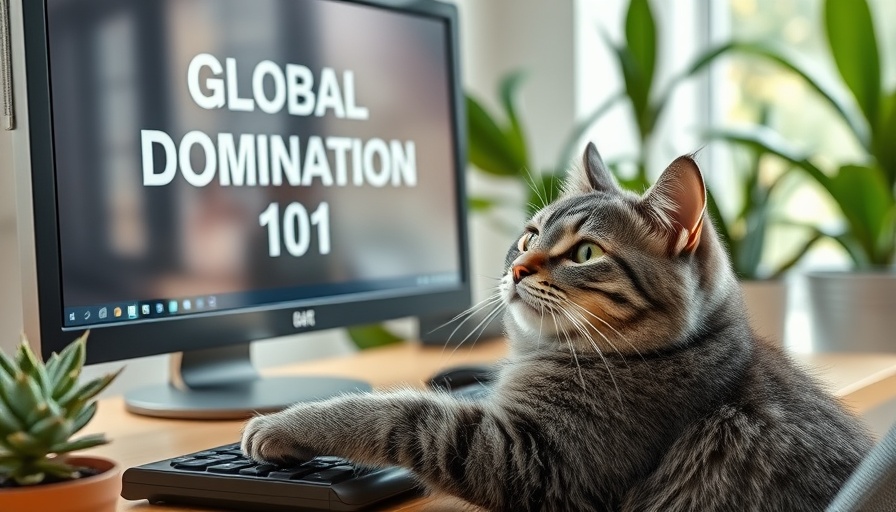
The New Frontier of AI in Content Creation
Artificial intelligence continues to carve out a significant presence across industries, and one of the most riveting advancements is OpenArt's revolutionary one-click story feature. This breakthrough technology is setting the stage for a wave of autonomous content engines that are poised to transform storytelling into an accessible art form for the masses.
Understanding OpenArt's Innovation
Launched in 2022, OpenArt is rapidly gaining traction among users, amassing nearly 3 million active monthly participants drawn to its easy-to-use platform. The significance of its one-click story feature cannot be overstated—it allows creators to produce engaging video narratives from a simple input, be it a song lyric, prompt, or even a mere sentence.
This functionality relies on a system where users can choose from templates like Character Vlog or Music Video, effectively tapping into the principles of zero-latency design. By allowing for real-time ops, OpenArt eliminates barriers previously imposed by traditional video editing tools, democratizing content creation.
The Ethical Dimensions of AI in Video Generation
While the creative freedom offered by OpenArt is captivating, it brings with it a myriad of ethical challenges. The very simplicity of generating content begs the question of originality, as artists' styles can be imitated more readily than ever. This raises fears of intellectual property infringement, as the line between inspiration and imitation becomes increasingly blurred. The potential for misinformation is significant as well, with misleading narratives easily produced.
OpenArt: A Tool for Businesses
OpenArt's innovations are not just for individual creators and influencers; they have profound implications for businesses too. Companies can leverage this technology to swiftly create promotional material that responds to current trends in real-time, embodying concepts akin to applied AI models and machine-led growth. This agility can not only save time but also reduce costs, democratizing access to tailored marketing campaigns.
Future Trends and Market Predictions
Looking further ahead, the integration of AI in content generation promises to expand its influence beyond entertainment and social media into sectors like marketing and education. OpenArt's one-click capability serves as a prototype for future smart stack growth, creating user-generated content that not only engages but educates, harnessing systemic design to form a more informed public.
The Dual-edged Sword of Accessibility
The democratization of content through AI tools like OpenArt embodies a societal shift where storytelling is increasingly accessible. Yet, with this freedom comes an urgent responsibility for users to understand the ethical implications of AI technology, employing strategies akin to code execution models for ethical storytelling. As individuals and businesses alike move toward adopting AI for content creation, emphasis must be placed on responsible use—balancing creativity with respect for human artistry.
The ascent of AI-driven content platforms signifies a historical pivot in media creation, merging artistic expression with sophisticated technology. As we navigate this new landscape, awareness and education surrounding the ethical, creative, and practical use of these tools will be vital.
In conclusion, the advancements offered by OpenArt exemplify not only a shift in how content is created but fundamentally alter the dynamics of advertising and storytelling in the digital age. Businesses, creators, and innovators must engage critically with these tools, ensuring paths of operational clarity and responsibility are established in this new realm of AI-driven discovery.
 Add Row
Add Row  Add
Add 


Write A Comment